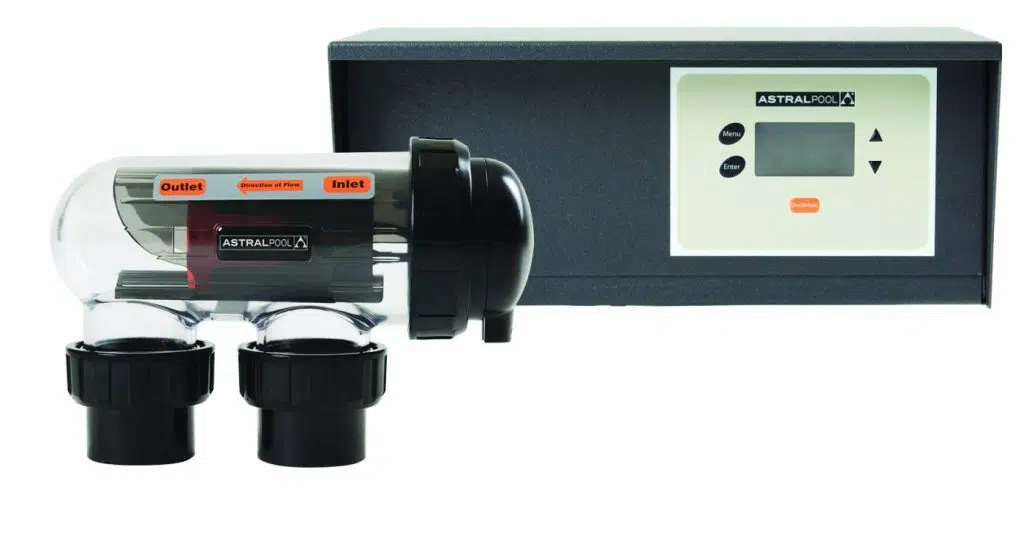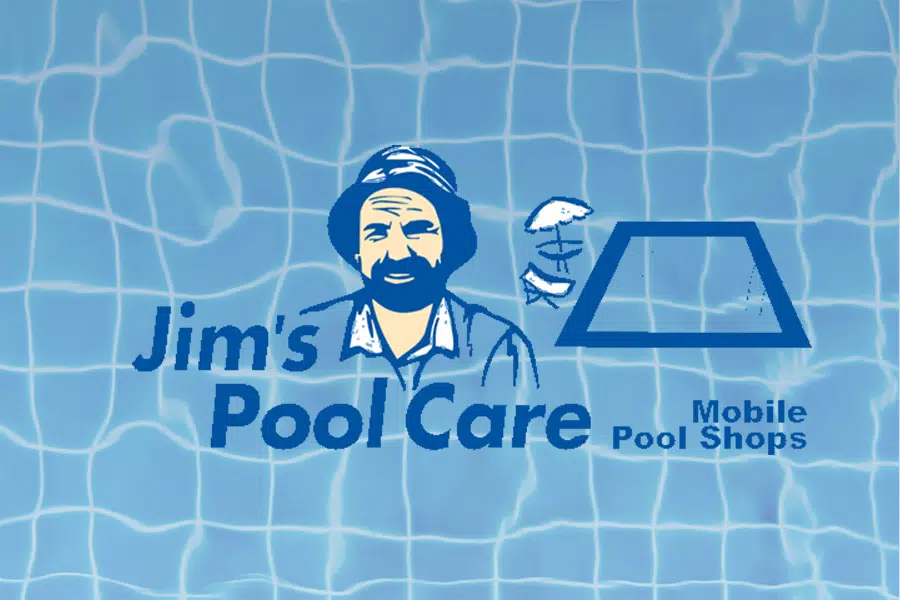
What is the difference between salt water and chlorination pools?

The age old question when it comes to pools – which is better, salt water or chlorine? Jim’s Pool Care can help you with some key considerations when it comes to understanding the differences.
Which is better, chlorine only or salt water?
Choosing to use either chlorine or a salt water system to clean and sanitise the water in your pool is an important decision. Both solutions ensure that your pool water is clean and safe for your family to swim in. The technology for a safe, affordable chlorine pool has been around for about 50 years, while salt water pools have only been around since the 1980’s. But, there are pros and cons for each, and there’s no stand-out “better” option.
To start with, salt water pools do actually have chlorine in them, that is what the Salt water Chlorinator does, it produces a chlorine gas that sanitises the water. Salt water generators create chlorine “in your backyard pool” as the salt is turned into chlorine gas and injected to the pool as part of the filtration process. So the chlorine found in a salt water pool isn’t added externally by someone, but rather is created from chemical electrolysis that occurs within a salt water chlorinator or salt water generator that is part of the system. Because you can run more consistant lower chlorine levels, salt water pools can less harsh on the skin, hair and swimwear and can be preferred by those with children for these reasons.
In addition, it is not uncommon for swimmers to have an aversion to the strong smell of chlorine from a traditional manual dosing chlorine pool system. This can be due to “overdosing” chlorine in bulk amounts. Did you know when chlorine is mixed with the sweat, saliva and skin of swimmers, it turns into other chemicals and by products such chloramines? Chloramines are responsible for the “chlorine smell” of pools, as well as skin and eye irritation. Even though chlorine kills contaminates, the chloramines stay in the water, requiring additional chlorine to remove them. Salt water pools kill chloramines faster than chlorine pools. This can be another reason why some pool owners choose to invest in a salt water pool system.
Chlorine pools also have their advantages – chlorine at sufficient dose rates, significantly reduces the spread of bacteria and viruses in swimming pools and continues to keep the majority of backyard pools in Australia crystal clear throughout the summer months. While it is perceived as an affordable system and one that most pool owners are comfortable maintaining, it can be a false economy with the consistent purchasing of chlorines (in various forms) and time and effort.
Pool Maintenance considerations
All Chlorine pools require constant surveillance whereas salt water pools can stay clean with less work because of the constant flow of chlorine from the salt water generator. The pH balance in both a chlorine pool and salt pool is not consistent and will need to be maintained at 7.2-7.6 ideally, so will require constant water tests to keep it maintained.
Saying that, although there are some maintenance-free saltwater systems available, most brands do require cleaning periodically, to remove calcium deposits which build up on the electrodes as a result of the electrolysis process. When installing your salt water system, you’ll be set up with a “base” level of salt in the pool. From here, you must ensure the correct salt-to-water ratio is consistently maintained. Salt never disappears or evaporates from the water; you manage the salt as the water level changes through rain, backwashing, draining and how much water is “splashed out”. This is relatively easy.
Nevertheless, the ongoing maintenance for a saltwater pool is much lower than a chlorinated pool. Chlorine pools typically require more work as you are constantly buying and adding chlorine to the pool to the maintain minimum chlorine levels. We recommend at least 2-3ppm but check with your local pool company or technician and they will guide you.
What about swimming pool running costs?
Salt water pools are usually more expensive at the onset because you need to purchase a salt water generator. In addition to the initial purchase price, there is also a small energy cost of keeping your generator operating constantly to ensure a steady flow of chlorine. It’s important to monitor your chlorinator when you first purchase it and work out the ideal schedule. You don’t want to have to spend the electricity to run it all day if you don’t have to, and you also don’t want to have it running so little that it doesn’t produce enough chlorine to keep your pool sanitised to safe levels. We recommend 8 hours per day split into two x 4 hour cycles.
Chlorine pools are generally much cheaper at the outset compared to saltwater pools, but they are somewhat harder to take care of in the long run, which can add to running costs. Chlorine pools require the purchase of chlorine and other chemicals from a pool shop which are added to the pool. Large doses of chlorine kills algae and bacteria faster than a salt pool will with its constant flow of chlorine production, so sometimes and extra dose of chlorine to your salt water pool will keep it sparkling. But your pool will have to be tested with a pH kit and chlorine added as required to balance out the pH levels. Whilst salt water pools do require top ups of salt, it is much cheaper to purchase compared to Chlorine. We all want our pools and pool water clear, clean and safe to swim in.
The verdict – Manual Dosing Versus Automatically done for you?
Chlorine pools require a commitment to maintenance and balancing water with chemicals, whilst salt water pools require less time to maintain, but can require a larger investment up front, but definitely saves you time and money over time. Choosing your best option depends on how dedicated you wish to be with your pool both financially and in terms of your time. How often your pool is used may be a consideration, but we would suggest a Salt Water Chlorinator is best and will give you consistent daily sanitiser, dosing your pool, enable sanitiser dosing while you are away or not around to monitor levels. More importantly they can prevent costly green pool cleanups.
Call a Jim’s Pool Care expert on 131 546 for some specialist advice on what would best suit your pool needs.
Book Two Classes for $2!
Get to know our studio before you commit to becoming a regular student. We can’t wait to meet you!
Client Testimonies











